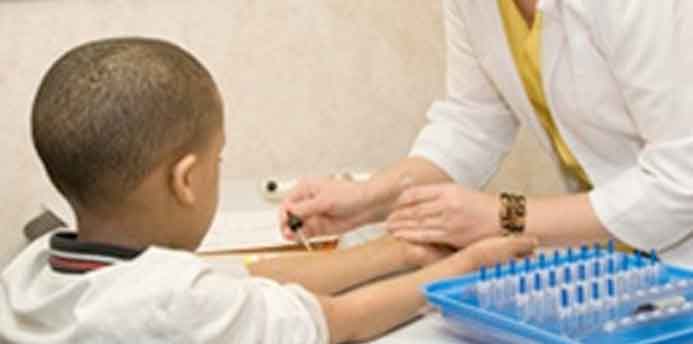The sneezy season is back. Runny noses, itchy eyes, and sneeze after sneeze after springtime sneeze.
What’s a mom to do if your child is affected by tree pollens, grasses or molds?
Tests and a full evaluation and diagnosis are critical, says Dr. Sai Nimmagadda, a Highland Park allergy and asthma specialist and a member of the Children’s Community Physicians Association. To help your doctor determine the right course of treatment, keep track of your child’s symptoms and when they start.
Cynthia Nack of Glenview knows the importance of properly treating a child with allergies, as her son Tyler, 13, has seasonal and food allergies, as well as asthma.
When it’s allergy season, “He’s miserable, and when he doesn’t sleep at night, no one sleeps,” she says. So it’s important to the whole family that Tyler’s allergies are under control.
To manage your child’s symptoms, your doctor may suggest a combination of these common treatments:
- Nasal steroids
- Antihistamines
- Allergy injections
Nasal steroids are superior to antihistamines, says Dr. Paul A. Greenberger, professor of medicine in the Division of Allergy-Immunology at the Northwestern University Feinberg School of Medicine in Chicago. The right treatment for your child won’t cause “presenteeism,” which Dr. Greenberger describes as “being present, but having impaired performance.” You don’t want your child’s medications to affect school and other activities, so keep track and ask for alternatives if the current mix isn’t working.
To minimize symptoms, make sure your child is adequately medicated before going out, and then insist on a shower when he or she comes back indoors, Dr. Nimmagadda adds. If your child is more sensitive, stay indoors on high-pollen days with the AC on and windows shut.
Nack provides the best advice in caring for Tyler’s allergies: “We just try to keep him healthy.”

